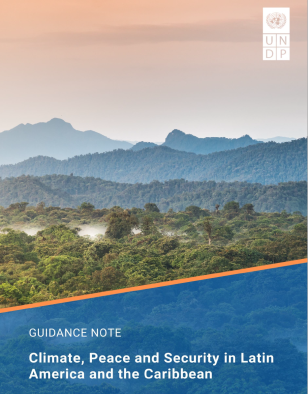Guidance Note: Climate, Peace and Security in Latin America and the Caribbean
Guidance Note: Climate, Peace and Security in Latin America and the Caribbean
August 1, 2023
From unprecedented floods to record-breaking heatwaves, the impacts of the climate crisis are more evident than ever. Rising temperatures, more severe and frequent extreme weather events, and erratic rainfall are driving biodiversity loss, affecting food prices, undermining livelihoods, and have been linked to increasing social and gender inequalities and large-scale displacement. In many coastal areas, sea level rise is fast becoming an existential threat and is raising questions regarding maritime boundaries and national identity. While we are only beginning to understand the wider impact of climate change on ecosystems, societies, institutions, and infrastructure, we know that it compounds structural weaknesses, has a differentiated impact, and hits hardest where coping capacities are already compromised. For example, 12 of the 20 countries most vulnerable and least prepared to adapt to were in conflict in 2020 and countries affected by violence receive less climate finance, on average.
As the pace of climate change accelerates, so its impact on peace and security has become an important element of the broader discourse. Yet, the global evidence base on climate-related security risks remains limited, as do examples of initiatives at scale.
This policy note takes a pragmatic approach to describing how UNDP might engage with climate, peace and security in Latin America and the Caribbean (LAC) and identify possible points of entry.

 Locations
Locations





